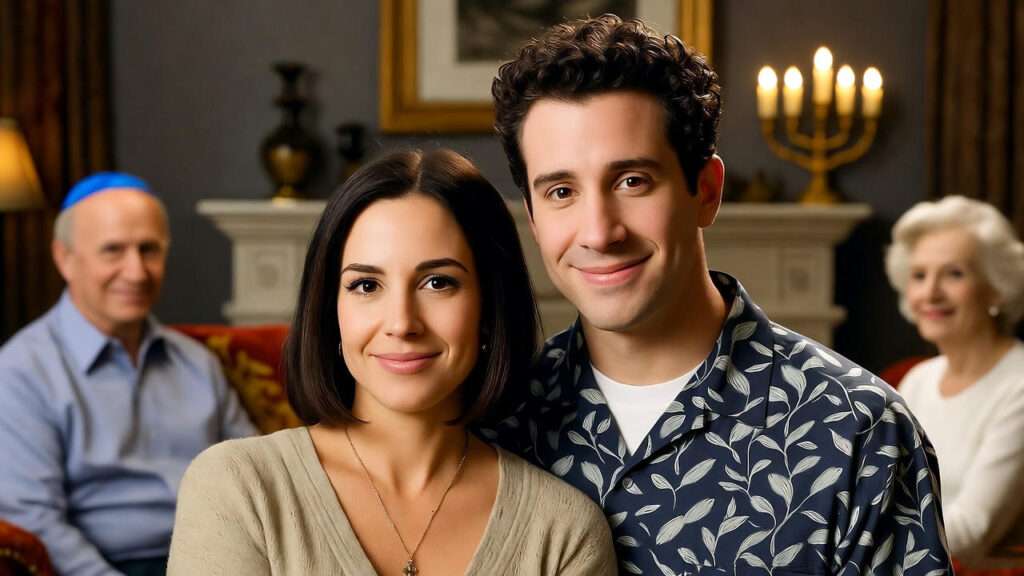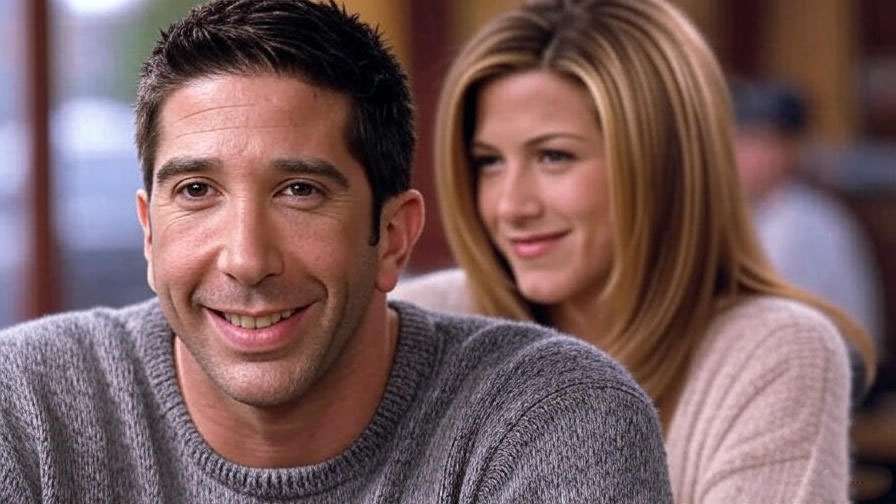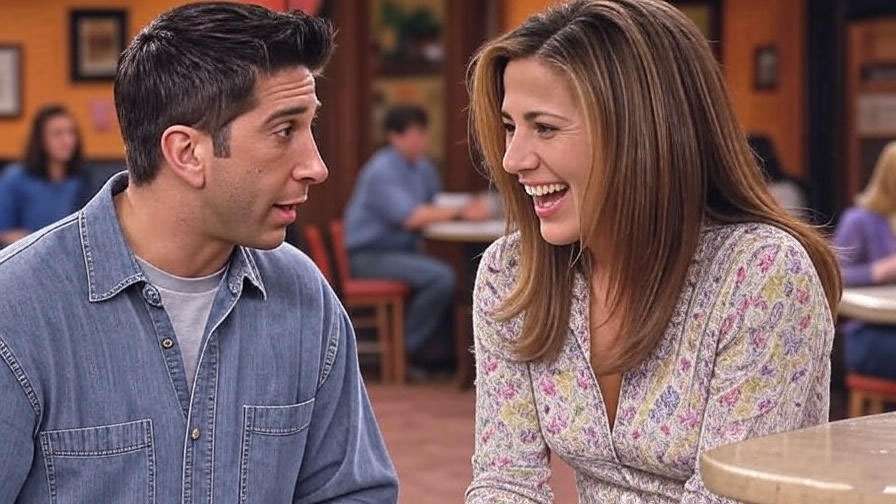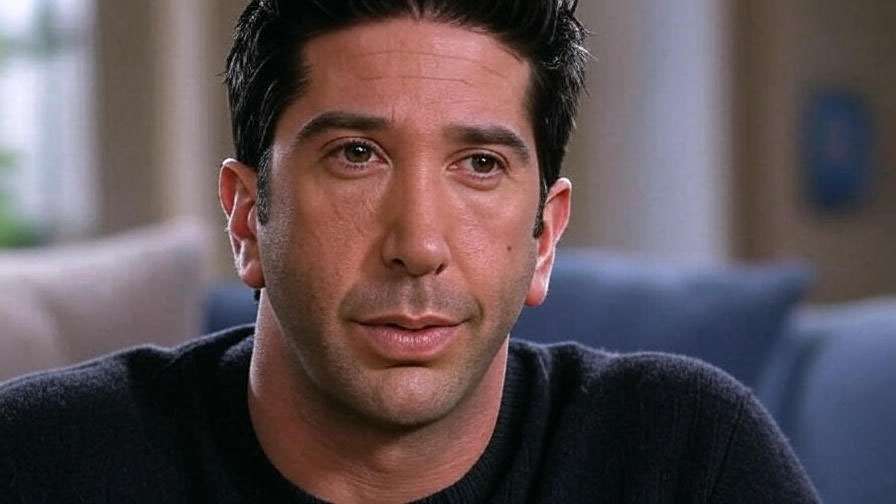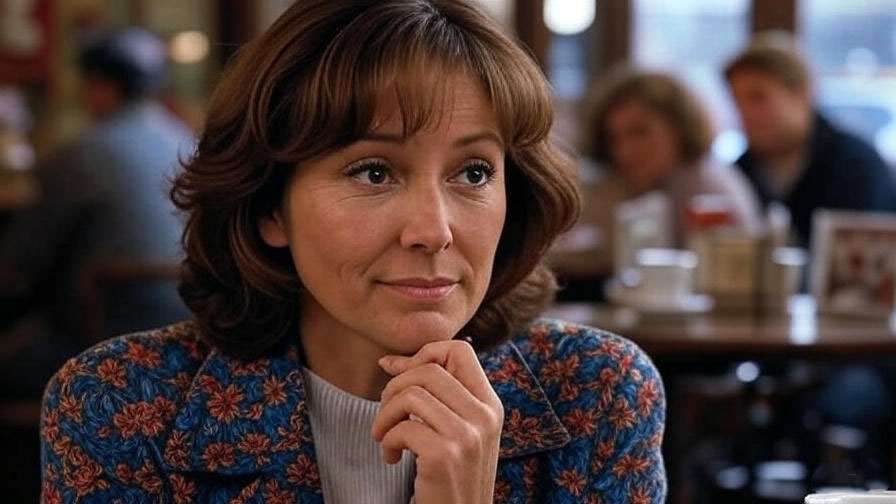Table of Contents
ToggleThe Hidden Layers of the Geller Family
“Friends” gave us six unforgettable characters, each bringing humor, emotion, and personality into our lives. But one question that continues to spark curiosity among fans even decades later is: is Monica and Ross Jewish? While the series never explicitly labels their religion, subtle hints, traditions, and cultural references strongly suggest that the Geller siblings — and their parents — are Jewish.
At first glance, Friends seems to avoid deep discussions about faith or cultural identity. Yet, beneath its light-hearted humor lies a nuanced representation of Jewish culture woven through the Geller family’s dynamics. From Ross’s Hanukkah lessons to Jack and Judy’s New York mannerisms, the show offers a quietly meaningful portrayal that resonates with audiences who recognize those subtle cultural cues.
This article dives deep into that question — not only to confirm whether Monica and Ross are Jewish, but also to uncover how “Friends” approached Jewish identity with humor, warmth, and subtlety.
Understanding the Context: Religion and Culture in Friends
Religion in Sitcoms: The Subtle Art of Representation
In the 1990s, sitcoms often focused on universal experiences rather than specific religious identities. Friends, like most mainstream shows of its era, aimed for broad appeal by avoiding overt religious narratives. Instead, religion appeared through cultural texture — a sense of belonging, family values, or traditions familiar to certain groups without alienating others.
Compared to shows like Seinfeld or The Nanny, which openly explored Jewish identity, Friends took a subtler approach. Religion wasn’t the punchline — it was part of the background, present in character habits, traditions, and family interactions.
How the Geller Family Fits This Pattern
Jack and Judy Geller (played by Elliott Gould and Christina Pickles) embody an archetype many viewers recognized immediately: the loving but overbearing Jewish parents from Long Island or suburban New York. Their speech patterns, guilt-driven humor, and obsession with perfection are hallmarks of Jewish-American family life often portrayed in comedy.
Through them, Monica and Ross inherit a blend of cultural pride, ambition, and neurotic humor that feels distinctly Jewish — even if never stated outright.
Clues That Monica and Ross Are Jewish
Name Origins and Cultural Hints
Let’s start with the most obvious clue — their surname. “Geller” is a common Ashkenazi Jewish surname of Yiddish and German origin. Historically, names like Geller, Goldberg, or Greenberg are strongly associated with Jewish families in the U.S., particularly those with Eastern European ancestry.
Names in sitcoms are rarely random. The writers of Friends — many of whom were Jewish themselves, including Marta Kauffman and David Crane — often drew from real cultural touchstones to shape their characters’ identities subtly but intentionally.
Family Traditions and Values
The Gellers reflect many traditional Jewish family values:
-
Education and career success are emphasized: Ross is a Ph.D. paleontologist, and Monica strives for excellence in her career as a chef.
-
Strong family bonds and loyalty: The siblings remain close to their parents and to each other, despite constant teasing.
-
Food-centered gatherings: Monica’s love of cooking and hosting large meals mirrors Jewish cultural emphasis on hospitality and celebration through food.
These traits aren’t inherently Jewish, but within the broader context of Friends, they reinforce cultural authenticity that Jewish audiences immediately recognize.
Episodes That Subtly Reference Their Jewish Heritage
While Friends doesn’t often discuss religion directly, certain episodes offer unmistakable evidence of the Gellers’ Jewish roots:
-
“The One with the Holiday Armadillo” (Season 7, Episode 10): Ross teaches his son Ben about Hanukkah, explaining the story of the Maccabees and the meaning of the menorah.
-
“The One with Chandler in a Box” (Season 4, Episode 8): During Thanksgiving, the Gellers’ interactions and family humor reflect their cultural identity — sarcastic, affectionate, and layered.
-
Monica’s wedding to Chandler: Though not overtly religious, elements of her family’s involvement and phrasing echo Jewish wedding traditions.
Together, these scenes form a mosaic of subtle yet undeniable cultural signals.

Ross Geller’s Connection to Jewish Identity
Ross as the Educated, Intellectual Character
Ross’s character aligns with traits often associated with Jewish cultural representation in media: intellectual curiosity, academic pursuit, and mild neurosis. His role as a paleontologist — a profession requiring years of study and expertise — plays into this cultural archetype without stereotyping it.
He’s deeply analytical, often socially awkward, and always striving to balance reason with emotion — traits that resonate with audiences who see a reflection of Jewish-American intellectual humor, similar to Seinfeld’s George or Woody Allen’s film personas.
Ross and Hanukkah: Teaching Tradition to the Next Generation
The “Holiday Armadillo” episode remains Friends’ most explicit acknowledgment of Jewish tradition. Ross, realizing his son Ben knows everything about Christmas but nothing about Hanukkah, takes it upon himself to teach him about his Jewish heritage.
Unable to find a Santa costume, Ross improvises and creates the “Holiday Armadillo,” a hilarious yet touching symbol of Jewish inclusion during the Christmas season.
What makes this scene powerful isn’t just the humor — it’s the emotional subtext. Ross’s determination to pass down his heritage, even awkwardly, showcases his quiet pride in being Jewish. In a show that rarely discussed religion, this moment stands out as both meaningful and endearing.

Monica Geller’s Portrayal and Cultural Nuances
Monica’s Personality and Cultural Traits
Monica Geller (played by Courteney Cox) embodies the perfectionist archetype — competitive, family-oriented, and deeply rooted in tradition. These traits, while universal, also align closely with Jewish cultural representations in American sitcoms.
Her love of family gatherings, her obsession with cleanliness and order, and her deep desire to please her parents all reflect a background where familial expectations and achievement matter greatly.
Moreover, her cooking — a central aspect of her identity — mirrors the Jewish tradition of food as a love language. Whether preparing Thanksgiving dinner or hosting the gang, Monica’s kitchen becomes the symbolic heart of the group, much like the family dining tables in Jewish households.
Subtle Mentions and Symbolic References
While Ross has a direct Hanukkah moment, Monica’s Jewish identity is expressed more subtly:
-
In “The One with the Joke,” Monica shows pride in Ross’s intellect — reflecting a family culture that values wit and intelligence.
-
In various episodes, her parents’ constant comparison of Ross’s achievements to hers echoes familiar Jewish family dynamics of high expectations.
-
Monica’s wedding, though not labeled as religious, includes emotional family rituals reminiscent of traditional Jewish celebrations — emphasis on unity, family, and community.
Her Jewishness, therefore, feels more cultural than religious — a reflection of how many American Jews live their identity in daily life rather than through overt religious observance.
The Geller Parents: Jack and Judy’s Influence
The Parents’ Mannerisms and Social Identity
Jack and Judy Geller are among Friends’ most vividly drawn side characters. Their behavior — warm yet critical, humorous yet overbearing — captures the essence of Jewish-American parents from an older generation.
Jack’s humor, filled with sly sarcasm and affection, feels straight out of a New York deli. Judy’s constant nitpicking about Monica’s choices, weight, and behavior echoes comedic portrayals of Jewish mothers in classic TV (think Rhoda or The Nanny).
Their house, family dinners, and speech patterns all subtly establish a cultural background. Without ever stating “we’re Jewish,” the Gellers embody a recognizable archetype that Jewish audiences connected to instantly.

Hidden Layers in Dialogue and Situational Humor
Several moments highlight their cultural undertones:
-
Judy’s comments about appearances and family success often carry that mix of guilt and love seen in Jewish family humor.
-
Jack’s exaggerated pride in Ross’s career achievements feels familiar to anyone raised in achievement-focused homes.
-
Their passive-aggressive yet loving tone — often played for laughs — mirrors how Friends used cultural shorthand without needing to explain it.
These character traits weren’t stereotypes; they were affectionate reflections of real, lived family dynamics.
Why Friends Avoided Direct Religious Labeling
The Show’s Focus on Universality
One of the main reasons Friends never explicitly confirmed that Monica and Ross were Jewish lies in its universal appeal. The series was designed to connect with audiences worldwide — across cultures, faiths, and backgrounds.
By avoiding overt religious labels, Friends allowed viewers from different walks of life to relate to its characters based on shared human experiences — friendship, love, heartbreak, and humor — rather than specific identities.
Creators Marta Kauffman and David Crane, both of Jewish heritage themselves, likely understood the importance of subtle representation. Rather than center the story on religion, they chose to weave Jewish identity into the background — authentic, familiar, but never exclusive.
Cultural Representation vs. Religious Representation
In Friends, Jewishness operates as a cultural identity rather than a religious one. While Ross’s Hanukkah episode touches directly on faith, most other references are cultural — family traditions, food, humor, and values.
This mirrors how many Jewish-Americans express identity: not necessarily through religious observance but through shared heritage and lifestyle.
For instance, Monica’s perfectionism and Jack’s constant boasting about Ross aren’t “religious traits” — they’re character dynamics shaped by a family culture rooted in love, pride, and high expectations.
Comparisons with Other Shows of the Era
While Friends took a light-touch approach, other 1990s sitcoms were far more explicit about Jewish identity:
-
Seinfeld often leaned into Jewish humor directly, with Jerry Seinfeld’s background woven into the show’s fabric.
-
The Nanny featured Fran Fine as a proudly Jewish protagonist, openly celebrating Jewish traditions and Yiddish expressions.
-
Mad About You also depicted Jewish cultural elements more openly.
Compared to these, Friends stood apart — not because it lacked representation, but because it normalized it. The Gellers’ Jewishness wasn’t the point — it was simply part of who they were.

Fan Theories and Scholarly Interpretations
Fan Discussions and Online Debates
Across Reddit, Quora, and Friends fan forums, the question “Are Monica and Ross Jewish?” has sparked thousands of discussions.
Fans cite multiple clues:
-
The Geller surname and the Jewish identity of the actors playing their parents (Elliott Gould and Christina Pickles often portrayed Jewish parents in other roles).
-
Ross’s Hanukkah storyline and the Gellers’ family behavior.
-
Subtle cultural humor — guilt, overachieving, and family-centric storylines.
For many fans, it’s not even a question — it’s simply understood. The Gellers are Jewish, whether or not the show needed to spell it out.
Academic and Cultural Analysis
Cultural scholars and media critics have explored how Friends portrays Jewish identity in an understated yet meaningful way.
Dr. Shira Segal, in her media analysis of 1990s sitcoms, noted that Friends “presents Jewishness as a normalized, unmarked identity — neither exoticized nor erased.”
This quiet normalization was revolutionary. It allowed Jewish culture to be represented in mainstream American television without becoming a central plot device. Instead, it lived in the details — in Monica’s home-cooked meals, Ross’s educational pride, and Judy’s sharp yet loving tone.
In essence, Friends didn’t “ignore” religion; it presented Jewish identity as seamlessly integrated into everyday life — much like real modern American experiences.
Broader Impact: Why Their Jewish Identity Matters
Representation in 1990s Pop Culture
During the 1990s, Jewish representation in television was evolving. Earlier sitcoms often exaggerated stereotypes for comedic effect. But Friends portrayed Monica and Ross as universal characters who just happened to be Jewish — reflecting a cultural shift toward normalization rather than differentiation.
For Jewish audiences, this felt both familiar and validating. They saw themselves represented — not through caricature, but through authentic, human characters navigating life’s ordinary struggles.
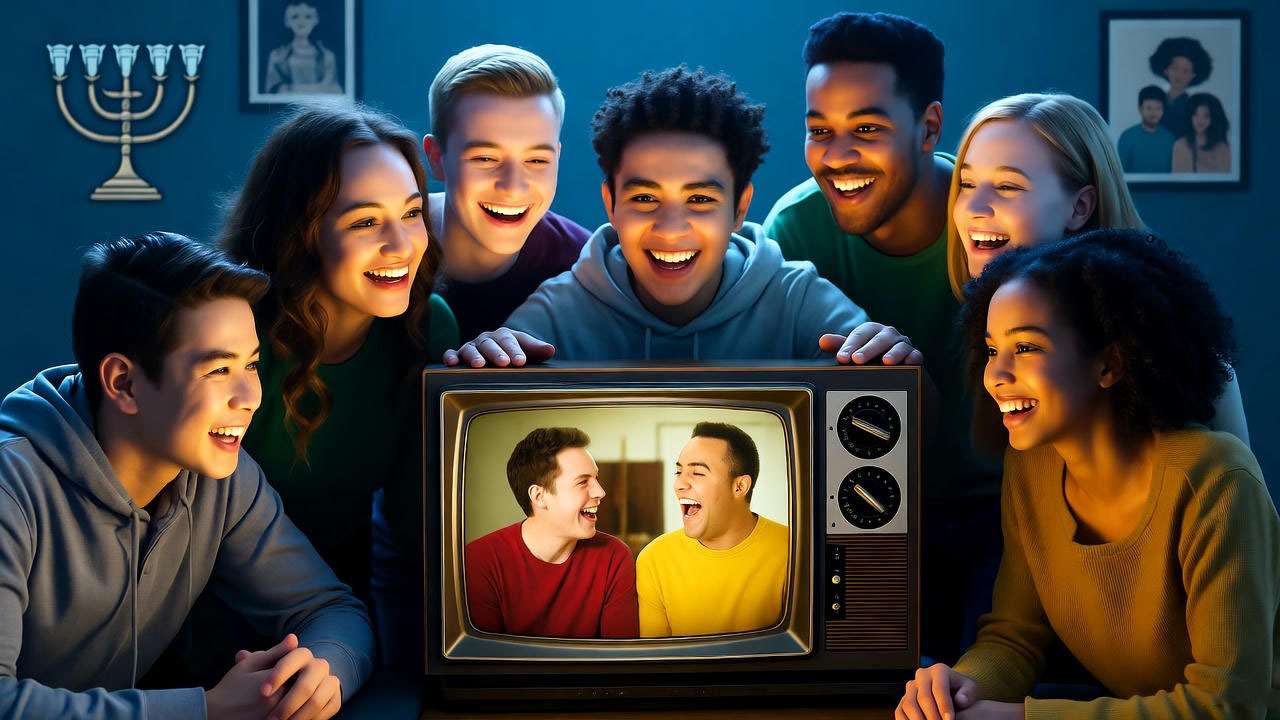
Cultural Significance for Fans Today
In retrospect, this subtle portrayal holds even greater significance. Modern audiences rewatch Friends with a deeper appreciation for cultural identity and inclusion. The Gellers’ quiet representation aligns with today’s understanding of identity as layered — part of a character’s background, not their sole defining trait.
The Hanukkah episode, in particular, has become an enduring favorite for Jewish fans. Ross’s effort to teach Ben about the Festival of Lights remains one of the few mainstream sitcom moments to treat Jewish tradition with humor and respect simultaneously.
For many, the Gellers’ identity represents something important: that Jewish culture can exist on television without needing to explain itself.
Conclusion: A Subtle but Meaningful Legacy
So, are Monica and Ross Jewish?
All signs point to yes — culturally, if not overtly religiously. From their family name and traditions to Ross’s Hanukkah storytelling and their parents’ unmistakable personalities, the Gellers represent Jewish-American identity in one of television’s most beloved sitcoms.
What makes this portrayal remarkable isn’t its visibility but its subtlety.
In a show that celebrates universal friendship and love, Jewish identity quietly enriches the Geller family’s story — giving depth to their humor, warmth, and emotional realism.
In many ways, that’s the brilliance of Friends: it never needed to tell us who the Gellers were — we simply recognized them. Their legacy reminds us that representation doesn’t always have to shout to be seen. Sometimes, it’s enough to exist naturally, woven seamlessly into a story that continues to make us laugh — and feel at home.
FAQs
1. Are Monica and Ross Geller actually Jewish in Friends?
Yes. While the show never explicitly states it, multiple references — such as Ross celebrating Hanukkah, their surname “Geller,” and their parents’ cultural behavior — confirm that the Geller family is Jewish.
2. Did Friends ever show Monica or Ross celebrating Jewish holidays?
Yes, most notably in “The One with the Holiday Armadillo” (Season 7), where Ross teaches his son Ben about Hanukkah. It’s the most direct acknowledgment of their faith in the series.
3. Is Ross’s son Ben Jewish in the series?
Given Ross’s cultural background, it’s implied Ben shares part of that heritage. However, the show never explicitly explores Ben’s religious upbringing.
4. Why didn’t Friends talk more about religion?
The show’s creators aimed for broad appeal. They focused on relatable human experiences rather than faith, making subtle cultural hints sufficient for identity representation.
5. Are the actors who played Monica and Ross Jewish in real life?
David Schwimmer (Ross) is Jewish, while Courteney Cox (Monica) is not. This blend reflects the show’s broader theme of inclusion and diversity without labels.
Conclusion
Monica and Ross Geller stand as timeless examples of how Jewish identity can exist in mainstream entertainment without being exaggerated or sidelined. Their story — funny, emotional, and real — proves that representation is most powerful when it feels authentic.
Through their family traditions, humor, and everyday experiences, the Gellers helped normalize Jewish culture on global television. And in doing so, Friends didn’t just make us laugh — it made us feel seen.

